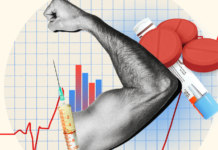Beneficial fats are those that contain monounsaturated and polyunsaturated fatty acids. Among these unsaturated fatty acids, the so-called omega-3 fatty acids such as α-linolenic acid, eicosapentaenoic acid, and docosahexaenoic acid are particularly valuable. They are easily digestible, improve blood flow, and thereby prevent deposits in the blood vessels,” says nutrition specialist Dr. Alexandra Blaik.
Oil and Nuts
Good fats inhibit inflammatory reactions in the body that can occur, for example, due to muscle overload. The body cannot produce these beneficial fatty acids on its own and must obtain them through diet. They are mainly found in rapeseed, soybean, and flaxseed oil, as well as in nuts and fatty fish such as herring, mackerel, and salmon. Blaik’s advice: “Consume approximately one tablespoon of oil daily and at least one serving of fish weighing 150 grams per week.”
On the other hand, saturated fatty acids are considered more problematic, although they also have essential functions in the body, such as hormone regulation, cell communication, and immune function, which are particularly important for swimmers. The problem lies in their negative effect on total cholesterol and LDL cholesterol (“bad” cholesterol) levels, which are significant risk factors for cardiovascular diseases.
Processed foods, chips, and sweets
“Highly processed products such as ready meals, chips, sweets, and processed meats often contain high amounts of saturated fatty acids. You should only consume these occasionally,” advises Blaik. However, she also knows that ready meals are popular among young athletes because they are quick to prepare after training. “If you use such products, choose ones that contain no more than five grams of fat per 100 grams.”


























